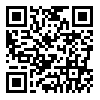Volume 38, Issue 1 (2020)
jmciri 2020, 38(1): 34-41 |
Back to browse issues page
Download citation:
BibTeX | RIS | EndNote | Medlars | ProCite | Reference Manager | RefWorks
Send citation to:



BibTeX | RIS | EndNote | Medlars | ProCite | Reference Manager | RefWorks
Send citation to:
Evaluation of Extracellular Circulating Human MicroRNA-197 as a Target Biomarker in Patients with Coronary Artery Disease. jmciri 2020; 38 (1) :34-41
URL: http://jmciri.ir/article-1-2981-en.html
URL: http://jmciri.ir/article-1-2981-en.html
Abstract: (3300 Views)
Background: Coronary Artery Disease (CAD) refers to the reduction or blockage of all or part of the coronary arteries due to the process of atherosclerosis or the presence of a clot. The aim of this study was to investigate the association of serum miR-197 as a diagnostic index in patients with coronary artery disease.
Methods: In this study, 100 patients with CAD were selected. Extraction of microRNAs from peripheral blood plasma was performed using an exclusive microRNA extraction kit. Then the cDNA synthesis and the expression level of miR-197 were performed using the Real Time RT-PCR technique and the SYBER Green method, using U6 snRNA as an internal control. T-test was used to analyze microRNA expression and significance and to determine the relationship between microRNA expression levels, Pearson correlation coefficient test was used.
Results:The results showed a positive correlation between miR-197 expression and CAD. The average expression of 0.78 in the control sample was increased to 2.76 according to severity of involvement in the patient. That is, the relative expression of miR-197 in the patients + group was significantly increased compared to control (P <0.004).
Conclusion: It appears that miR-197 can be considered as an indicator of coronary endothelial cell function. It is possible to use it as a bio marker for prognosis, and control of treatment for CAD.
Methods: In this study, 100 patients with CAD were selected. Extraction of microRNAs from peripheral blood plasma was performed using an exclusive microRNA extraction kit. Then the cDNA synthesis and the expression level of miR-197 were performed using the Real Time RT-PCR technique and the SYBER Green method, using U6 snRNA as an internal control. T-test was used to analyze microRNA expression and significance and to determine the relationship between microRNA expression levels, Pearson correlation coefficient test was used.
Results:The results showed a positive correlation between miR-197 expression and CAD. The average expression of 0.78 in the control sample was increased to 2.76 according to severity of involvement in the patient. That is, the relative expression of miR-197 in the patients + group was significantly increased compared to control (P <0.004).
Conclusion: It appears that miR-197 can be considered as an indicator of coronary endothelial cell function. It is possible to use it as a bio marker for prognosis, and control of treatment for CAD.
| Rights and permissions | |
 |
This work is licensed under a Creative Commons Attribution-NonCommercial 4.0 International License. |

